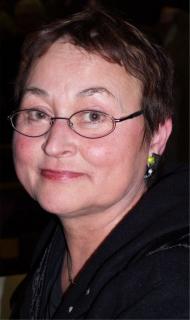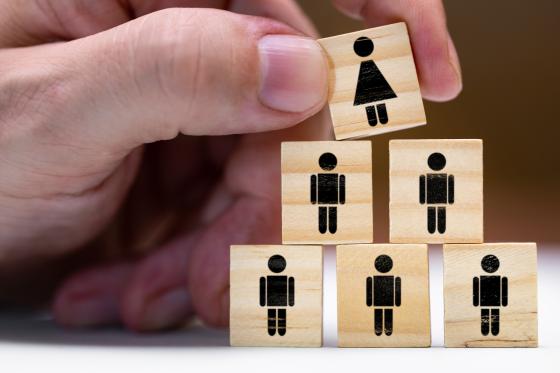Recommends earmarking
In a new memo requested by the Ministry of Education and Research, the Committee for Mainstreaming - Women in Science recommends active use of gender quotas and earmarking of permanent and temporary positions for female scientists.

"We suggest earmarking permanent academic positions for women on a national level. The Minister of Education and Research, Tora Aasland, announced this spring that she is positive towards earmarking. We therefore feel that this is worth a try," says Gerd Bjørhovde, head of the Committee for Mainstreaming - Women in Science (the Kif committee).
At the end of January the Ministry of Education and Research asked the Kif committee to establish goal-oriented and specific suggestions for measures that might improve women’s chances to become scientists and measures that encourage women to choose a career in science. The request was made after several months of debate on earmarking of academic posts for women and after a number of people and groups had asked the ministry to give its opinion on the matter.
The Kif committee wants the ministry to look at the possibility of earmarking permanent academic positions and of funding more post doc. positions for female scientists.
"Earmarking post doc. grants for women was implemented as a national gender equality measure until it was banned in 2003. This measure led to an increased number of female post docs. But since then the female ratio has gone down again, so we feel this measure should be reintroduced," says Bjørhovde.
However, she stresses that the committee has not looked at the legal aspect of their suggested measures.
"No, we have informed the ministry of our stand, based on reports from the sector which stated that earmarking worked the last time it was implemented. In addition, we have gathered information which shows that earmarking is being used in several other European countries. But our suggestions will now be sent to government lawyers who will make sure that the measures are legal."
This means that the institutions that want to earmark positions for women patiently must await permission from the Ministry of Education and Research.
Multiple solutions
Although the committee recommends earmarking of positions Bjørhovde states that they suggest a wide range of measures.
"It is important to stress that there is not only one solution. Different institutions and academic fields have different problems, so we need to implement a variety of measures. Hence, we have many options even if earmarking is excluded."
Bjørhovde also mentions establishing qualification grants for women and an integration programme run by The Research Council of Norway.
"Many institutions have previous experience with qualification grants. The point is to provide women with grants in order to facilitate career advancement. We wish to establish these incentives also on a national level to help women qualify for professorships or positions as chief science officers. The latter is important because we know that many highly skilled women in the institute sector might benefit from these grants."
The Kif committee has suggested that the Research Council’s integration programme may include measures related to internationalisation, start-up packages and incentives to help increase women’s chances of attaining permanent academic positions.
"We want the Research Council of Norway to become more actively involved in these matters. We have therefore proposed that they initiate an integration programme for gender equality."
But even though the committee was assigned to suggest national measures their report emphasises that the main responsibility in the work for gender equality rests on the institutions. The committee leader hopes that the Ministry of Education and Research will follow up with a national effort to promote gender equality.
"The most important thing now is that the ministry acts on our recommendations. We want a real commitment that will make an impact on the sector," Bjørhovde concludes.
Translated by Vigdis Isachsen
The Committee for Mainstreaming – Women in Science has on behalf of the Ministry of Education and Research established goal-oriented and specific suggestions for measures in order to further women’s chances of working as scientists, and measures that encourage women to choose a career in science. The objective of the assignment is twofold – one is specifically related to different ways of earmarking positions, the other focuses on general measures to further women’s opportunities in science. The Kif committee has distinguished between measures that each institution may put into effect and measures that need to be implemented by the government. The modelled measures have mainly been adapted to a national level, and the potential gain from each measure has been assessed.
